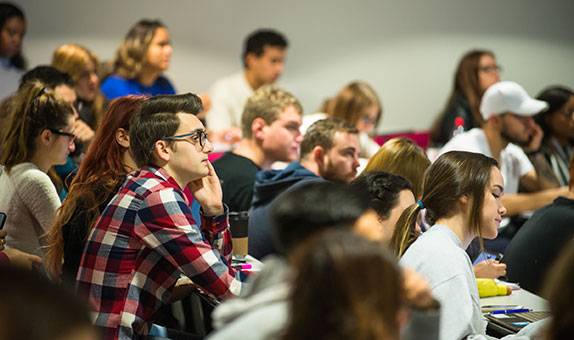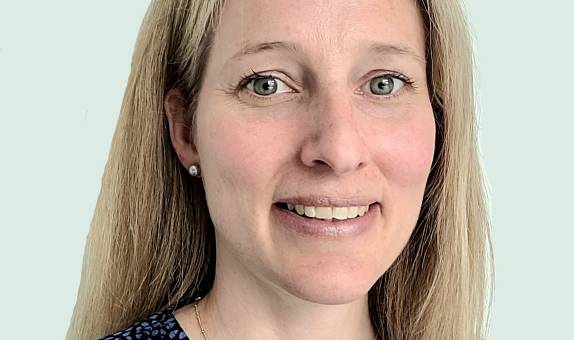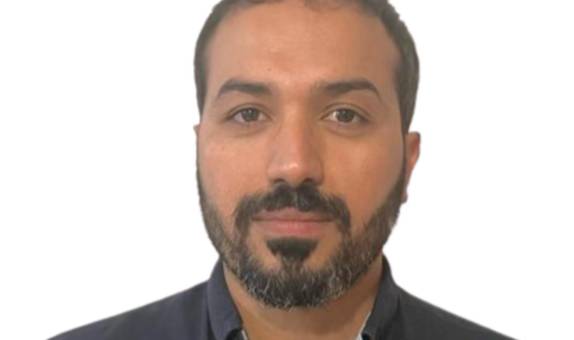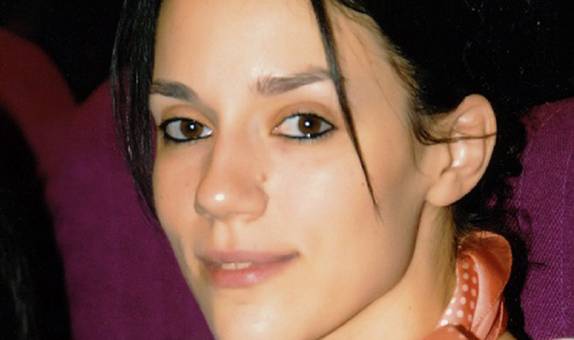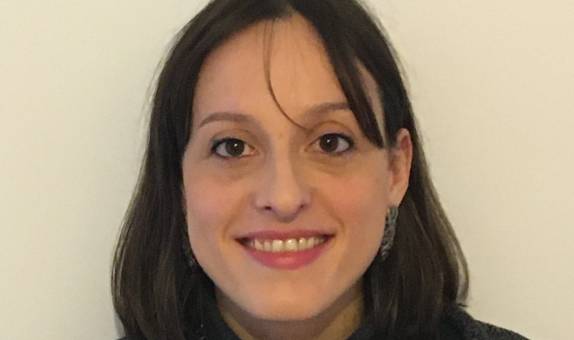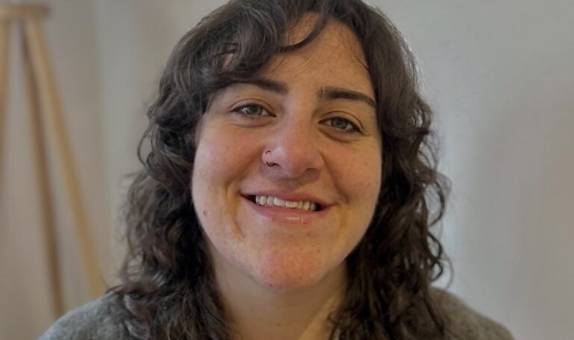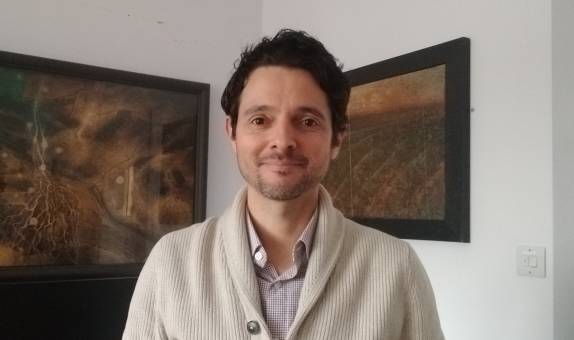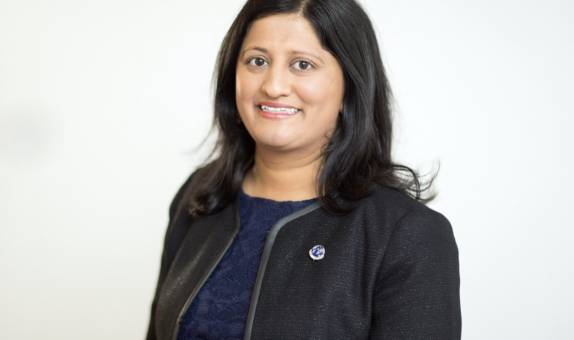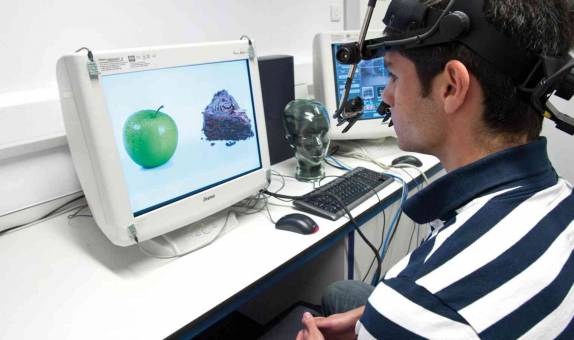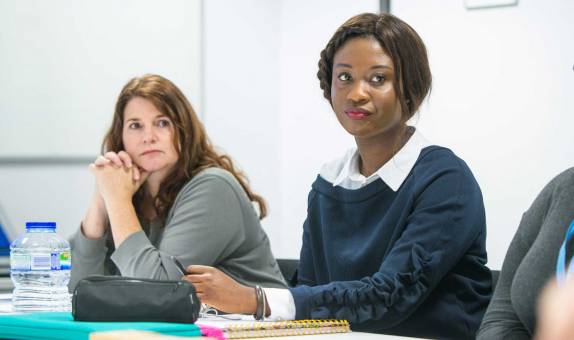Psychology with Counselling BSc (Hons)
Why choose this course?
This dynamic degree explores the complexities of the human psyche, arming students with the tools to make a positive impact on emotional wellbeing. You will study key counselling approaches such as person-centred, cognitive-behavioural and psychodynamic therapies.
While developing an understanding of common and complex mental health disorders, you will also develop key counselling competences such as communication and listening skills, empathy, self-awareness, establishing boundaries and working ethically within a therapeutic setting.
Taught by specialised academics and qualified counsellors, you will also develop a core understanding of the fields of cognitive, biological, developmental and social psychology, as well as transferable skills in experimental design and statistical analysis.
A combination of Psychology with Counselling can be recognised as a real asset by employers because these subjects develop knowledge and people skills that are invaluable when working with individuals and teams. Upon graduation you will be eligible to apply for postgraduate training or studies. For example, a Doctorate in Counselling or Clinical Psychology which will lead to Chartered Psychology Status.
| Attendance | UCAS code | Year of entry |
|---|---|---|
| 3 years full time | C890 | 2025 |
| 4 years full time including foundation year | C891 | 2025 |
| 4 years full time including professional placement | C892 | 2025 |
| 6 years part time | Apply direct to the University | 2025 |
Please note: Teaching on this course may take place on more than one KU campus.
| Main Location | Penrhyn Road |
Reasons to choose Kingston University
- This course is accredited by the British Psychological Society (BPS)
- Upon graduation, you will be in an excellent position to pursue further training and education in careers such becoming a counsellor or therapist.
- This degree also prepares you to pursue postgraduate training in clinical or counselling psychology or any chartered psychology degree.
- Kingston has close links with schools, hospitals, and clinics, offering real-life environments to learn in and adding valuable work experience to your CV.
- The option of a one-year paid work placement in the application of psychology will boost your employability further.
- You will have a personal tutor and a small tutor group of peers that you meet with regularly to support your transition to university and your academic success.
Kingston's Department of Psychology
Accreditation
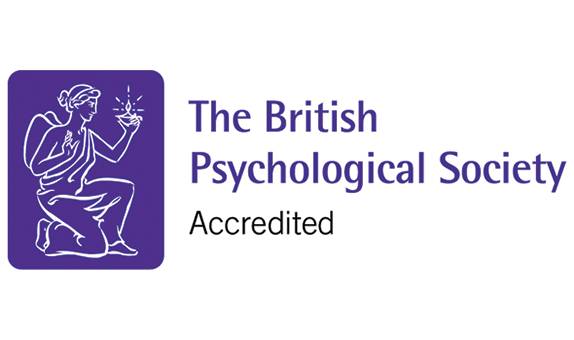

This course is accredited by the British Psychological Society (BPS), which means that you could go on to become a Chartered Psychologist if that is your chosen career path. This is an ongoing accreditation.
Graduates, with a minimum of a 2:2, from this course are eligible to gain Graduate Basis for Chartered Membership (GBC) from the BPS. This is a necessary first step towards becoming a Chartered Psychologist. You would then take further training in a specific field of psychology that you want to work in. This could then lead to a career as a Chartered Psychologist in your chosen field, for example forensic psychology.
Kingston received the following commendation during the latest BPS review in 2024:
"The high level of the programme team's responsiveness to the student voice is commendable. A proactive approach is adopted to continually evaluate, develop and enhance the programmes based on student input."
What you will study
Take a look at some of the content and modules that you may have the opportunity to study on this course:
Year 1
Year 2
Optional year
Professional placement year
Year 3
In your first year, you will acquire a broad foundation of knowledge around key theories and ideas of psychological science. You will begin to critically analyse historic perspectives, contemporary issues and ways of thinking about identity. You will be introduced to key strategies which are used in psychological research.
Modules
Psychology Research Methods 1
30 credits
This module is a core requirement for students taking psychology in level 4. The module will introduce you to key strategies which are used in psychological research, including designing an experiment, hypothesis testing, and statistical analysis. The main features of the module will involve the acquisition of practical skills in psychological research, learning how to apply and carry out statistical tests using SPSS, and how to report research findings.
Throughout the module you will learn how to design a research project, analyse data and report a psychological experiment.
Introduction to Psychology
30 credits
This module introduces you to the fascinating theories and ideas of psychological science across core research areas.
It provides a broad foundation of knowledge, encompassing both these core areas and many specialised sub-areas, including biological psychology, learning, sensory and perceptual processes, memory, thought and knowledge, language, social psychology, developmental psychology, neuropsychology, individual differences, and clinical psychology.
Approaches and Professional Skills in Psychology
30 credits
This module will equip you with the essential skills for studying psychology, including reflective thinking, critical evaluation and effective collaboration.
We will look beyond traditional Eurocentric frameworks to explore diverse ways of constructing and sharing knowledge, gaining insight into indigenous and Eastern psychological traditions.
The module will examine key conceptual and historical paradigms, as well as major philosophical debates that have shaped psychology as a science. You will also study the impact of colonialism on psychological research and theory, providing a broader understanding of the field.
Applying Psychology in the Real World
30 credits
This module explores the practical applications of psychology in real-world contexts, highlighting how psychological principles address modern social, occupational, and health challenges. You will explore key theoretical frameworks, applied methods, and real-world case studies that showcase psychology in action. Topics include Health Psychology, Educational Psychology, Sports Psychology, and interventions in workplace and community settings. The module emphasises the role of research in shaping practice and explores the ethical considerations involved.
In the second year, you will examine the relationship between brain function and our understanding of cognition and behaviour. You will study current theory and practice that focuses on the person in psychology. You will also be introduced to counselling and psychotherapy in practice, developing practical skills and exploring real-life case studies.
Modules
Psychology Research Methods 2
30 credits
This module builds on the introduction to research methods and inferential statistics offered in PS4001 Research Methods 1. It will cover more advanced research designs — involving multiple independent variables — and more advanced inferential statistics such as analysis of variance, regression analysis and factor analysis. It will also introduce students to qualitative research methods and data analysis. Students will learn to develop and implement multifactorial experimental designs through practical research exercises and a project. Students' scientific writing skills will be further developed on the basis of a series of lab reports.
Social and Developmental Psychology
30 credits
The module covers a broad range of key theories and empirical research in social and developmental psychology. You will study current theory and practice in psychology across range of topics that focuses on the person in psychology. We will explore the importance of culture, ethics, the scientific approach and the notion of measurement.
Brain, Behaviour and Cognition
30 credits
This module covers major topics within the field of cognitive psychology and examines the relationship between brain function and our understanding of cognition and behaviour. You will be introduced to key theoretical explanations proposed to account for human cognition, alongside some real-life applications of cognitive psychology. You will study the structure and function of the nervous system before examining the contribution of specialised brain structures to cognitive functions such as perception, attention, language, memory and decision making, and behaviours such as motivation, eating, emotion and sleep. You will also learn about the effect of hormones, drugs and neurological dysfunction on cognition and behaviour.
Introduction to Counselling and Psychotherapy in Practice
30 credits
This module offers a comprehensive insight into counselling and psychotherapy, presenting key concepts, theories and methodologies that constitute the bedrock of therapeutic practice. You will develop the core practical skills necessary for effective counselling (e.g. active listening, empathy and nonverbal communication). You will explore real-life case studies and how theoretical concepts are applied in practical scenarios, fostering an understanding of how diverse approaches can be effectively employed.
This module also underscores the importance of self-awareness and reflective practice for therapists, addresses legal and ethical complexities, and culminates with discussions about ongoing professional development and emerging trends in the ever-evolving field of counselling and psychotherapy.
Study abroad optional year
You have the option to take an additional year to study abroad or to undertake a year-long work placement overseas (or even a mix of both).
This course has a professional placement year option which takes place between Year 2 and your Final Year. During this professional placement year you will take a placement within a relevant setting, ensuring you gain essential experience to add to your CV and help you secure a graduate job.
In your final year, you will research a chosen topic for your dissertation. You will explore the relationship between mental health issues and the practice of counselling and psychotherapy across the lifespan. Through practical sessions, you will focus on your personal development and aspirations, while expanding your knowledge of therapeutic techniques used in counselling and psychotherapy.
Core modules
Psychology Research Project
30 credits
This module provides the opportunity to study and employ different methodologies in psychology by evaluating the strengths and limitations of different research designs. Students will execute an empirical research project on a topic agreed in consultation with a Psychology staff supervisor. Supervisory sessions with an academic supervisor will guide students to conduct a literature review, formulate a research question, design a research study, and consider research ethics relating to their study, culminating in data collection and writing up of a research report which satisfies APA guidelines.
Mental Health in Counselling and Psychotherapy
30 credits
This module explores the intricate relationship between mental health issues and the practice of counselling and psychotherapy across the lifespan. Students will learn about various facets of mental health disorders, encompassing their assessment, treatment, and the strategic therapeutic techniques employed to aid individuals confronting psychological challenges. Therapeutic methods are introduced, with specific focus on the person-centred approach and integrative counselling. Tailored counselling strategies for distinct disorders are outlined through illuminating case studies. Students will also discover current trends and research in the field, enabling them to keep up-to-date with the latest advancements and apply holistic and empathetic care within the domain of counselling and psychotherapy.
Personal Development and Therapeutic Process
30 credits
This practical module examines students' personal growth and therapeutic techniques in counselling and psychotherapy. The module underscores the importance of a counsellor's self-awareness, self-care, continuous learning and emotional well-being in nurturing successful therapeutic outcomes using a client/user-centred approach. Through practical sessions and group-based work, students will explore the role of personal values, biases, and triggers in shaping counsellor-client interactions and relationships. Ethical frameworks and professional guidelines are at the centre of all practical work, with emphasis on the necessity of maintaining confidentiality and practising within one's competencies. Cultural competence is also spotlighted, urging students to navigate diverse clients with cultural sensitivity and inclusiveness.
Personality and Individual Differences
15 credits
This module examines contemporary perspectives on personality and individual differences, including theories of personality and intelligence, and the measurement of individual differences You will explore the concepts of equality, diversity, and inclusion, and discuss how psychologists can actively promote practices which embrace and value diversity and inclusion. You will review the practice of assessing individual differences in clinical, educational, and organisational contexts, considering ethical issues and the promotion of equality, diversity, and inclusion in these contexts.
Future Skills Apply
15 credits
This module provides you with a dedicated opportunity to develop your Future Skills Graduate Attributes and to tailor your development in line with your future aspirations.
You will be able to choose from a range of development pathways designed to help you prepare for further study, graduate careers, freelancing or starting your own business and to engage in a range of skills development opportunities relevant to you.
You will also take part in a complex challenge set by employers, community organisations or the University with the opportunity to work alongside students from other subjects, and you will complete a reflective assignment highlighting how you have developed and applied the Graduate Attributes.
Please note
Optional modules only run if there is enough demand. If we have an insufficient number of students interested in an optional module, that module will not be offered for this course.
Foundation year - Social Sciences
If you would like to study this degree at Kingston University but are not yet ready to join the first year of a BSc (Hons) course, you may want to consider studying this course with a foundation year.
Future Skills
Knowledge to give you the edge
Embedded within every course curriculum and throughout the whole Kingston experience, Future Skills will play a role in shaping you to become a future-proof graduate, providing you with the skills most valued by employers such as problem-solving, digital competency, and adaptability.
As you progress through your degree, you'll learn to navigate, explore and apply these graduate skills, learning to demonstrate and articulate to employers how future skills give you the edge.
At Kingston University, we're not just keeping up with change, we're creating it.

Kingston School of Law, Social and Behavioural Sciences
The School offers courses in economics, sociology, law, psychology and criminology. Our degrees are underpinned by a vibrant research culture and delivered by a blend of practitioners and academics who are dedicated to equipping you with the employability skills to thrive in your career.
You will have a wealth of opportunities outside the classroom to further your learning and gain hands-on experience in your chosen field.
Life on the course
After you graduate
Mental health problems are a significant and growing issue, with an estimated one in four people experiencing mental health problems at some point in their lives.
The importance of counselling to the wellbeing of individuals and society is increasingly recognised. This has led to an increased demand for mental health services, and a corresponding increase in the number of job opportunities available for graduates in this field.
Graduates may work in the charity and care sector, advocacy and victim support services, National Health Service or as mental health support workers.
In addition, graduates are well placed to pursue postgraduate education such as the Doctorate in Clinical Psychology or Counselling psychology to become a Chartered Psychologist. Further training and education can lead to Chartered Psychology status in other areas (e.g. Health, Forensic, Educational), or becoming a counsellor, a psychological wellbeing practitioner, a teacher or an HR Professional.
Specialist careers support
You will take part in an Assessment Centre Experience, providing the opportunity to experience the pathway to employment with tailored feedback to help develop your employability skills for the world of graduate employment.
- Develop your understanding of the jobs market, including current trends and opportunities, different recruitment processes and how to identify relevant roles
- Receive personalised feedback reports to help you to improve and progress
- Access additional webinars on top tips, employer expectations and best practice

Entry requirements
Teaching and assessment
Scheduled learning and teaching on this course includes timetabled activities including lectures, seminars and small group tutorials.
Who teaches this course?
You will be taught by an experienced teaching team whose expertise and knowledge are closely matched to the content of the modules on this course. The team includes senior academics and professional practitioners with industry experience. Postgraduate research students may also contribute to the teaching of seminars under the supervision of the module leader.
The following group of staff members are currently involved in the delivery of different elements of this course. This pool is subject to change at any time within the academic year.
Course fees and funding
Additional costs
Depending on the programme of study, there may be extra costs that are not covered by tuition fees which students will need to consider when planning their studies. Tuition fees cover the cost of your teaching, assessment and operating University facilities such as the library, access to shared IT equipment and other support services. Accommodation and living costs are not included in our fees.
Where a course has additional expenses, we make every effort to highlight them. These may include optional field trips, materials (e.g. art, design, engineering), security checks such as DBS, uniforms, specialist clothing or professional memberships.
Key information set
The scrolling banner(s) below display some key factual data about this course (including different course combinations or delivery modes of this course where relevant).
Course changes and regulations
The information on this page reflects the currently intended course structure and module details. To improve your student experience and the quality of your degree, we may review and change the material information of this course. Course changes explained.
Programme Specifications for the course are published ahead of each academic year.
Regulations governing this course can be found on our website.



